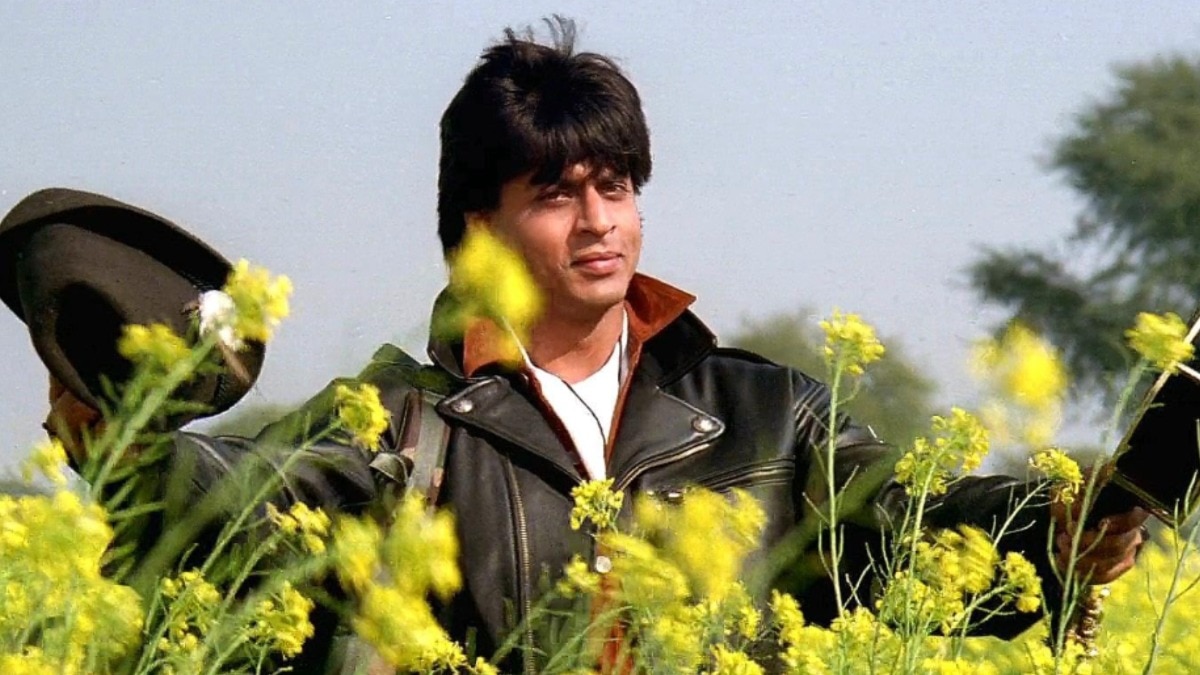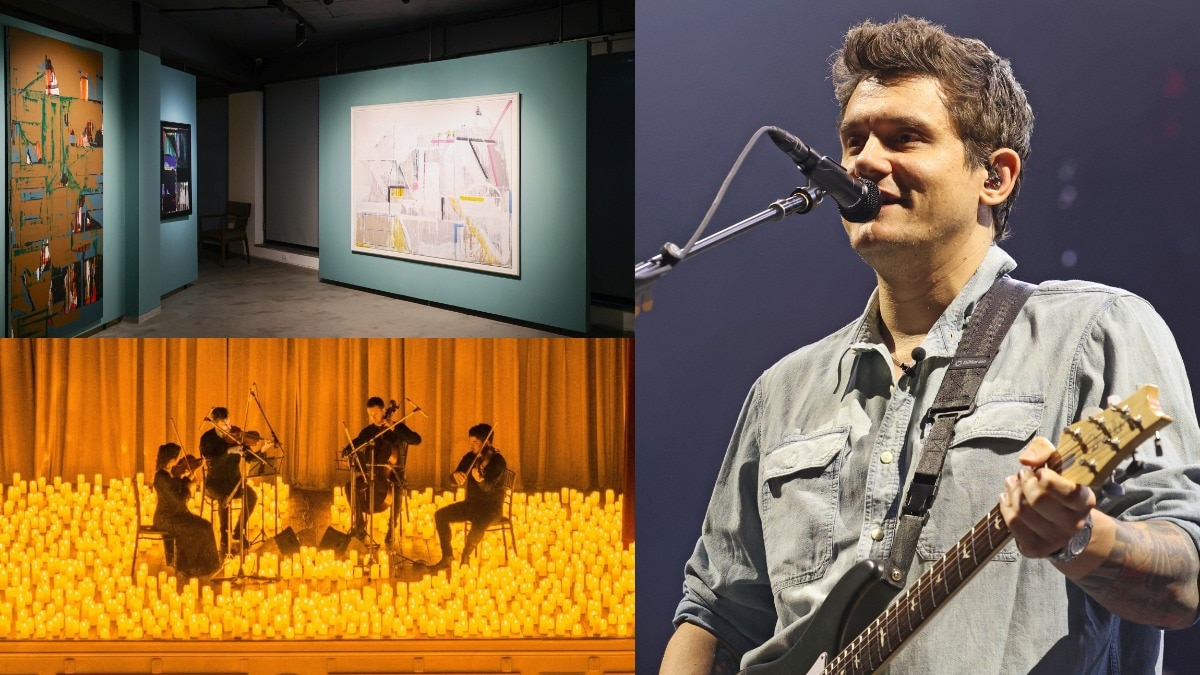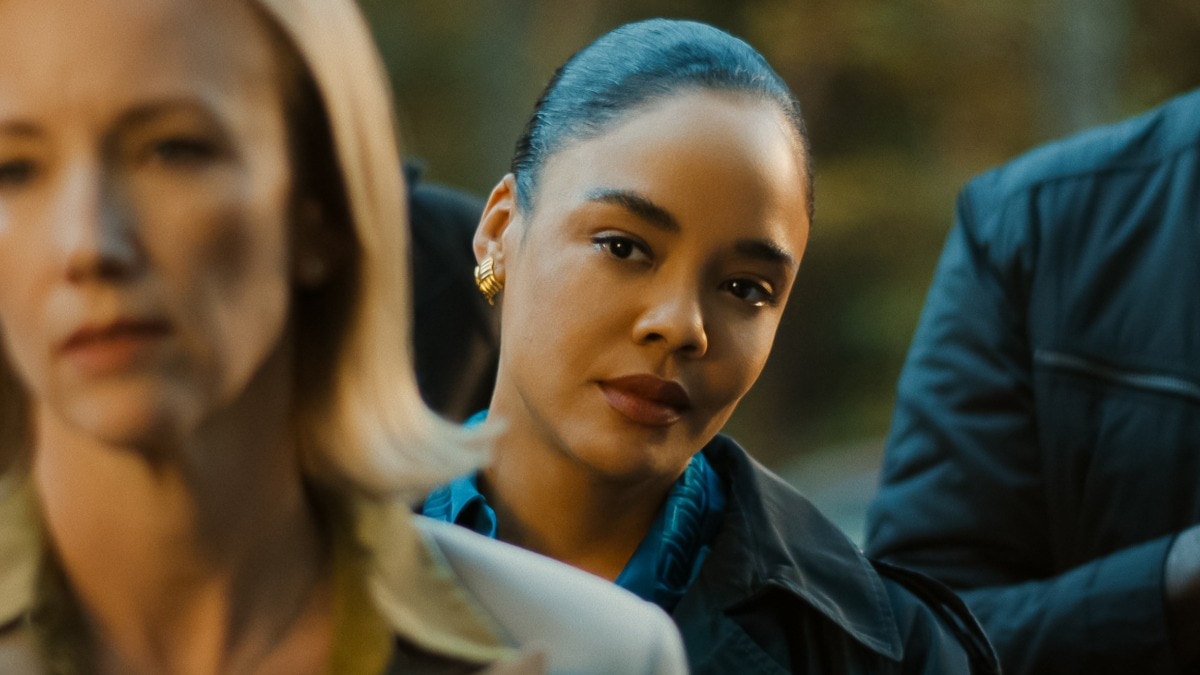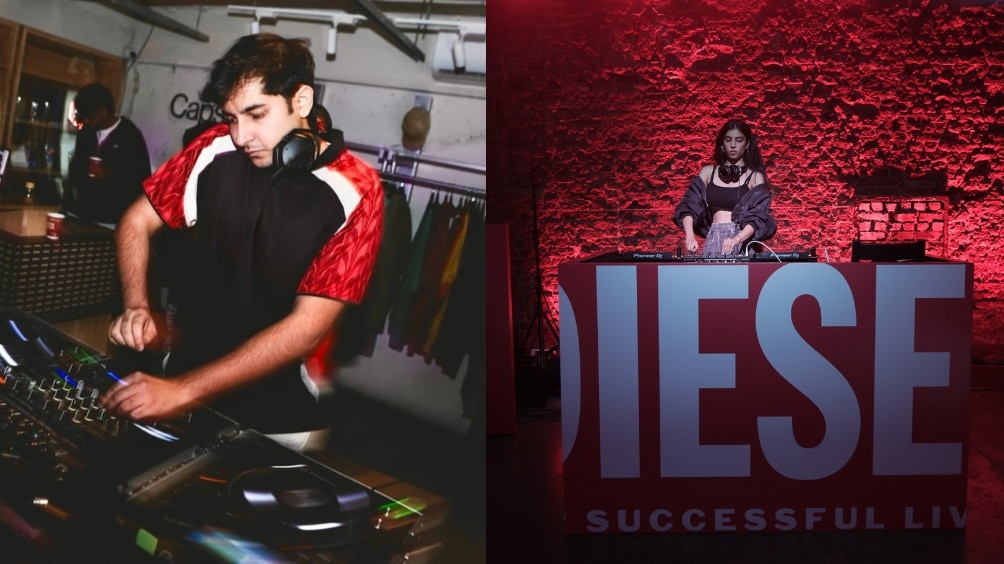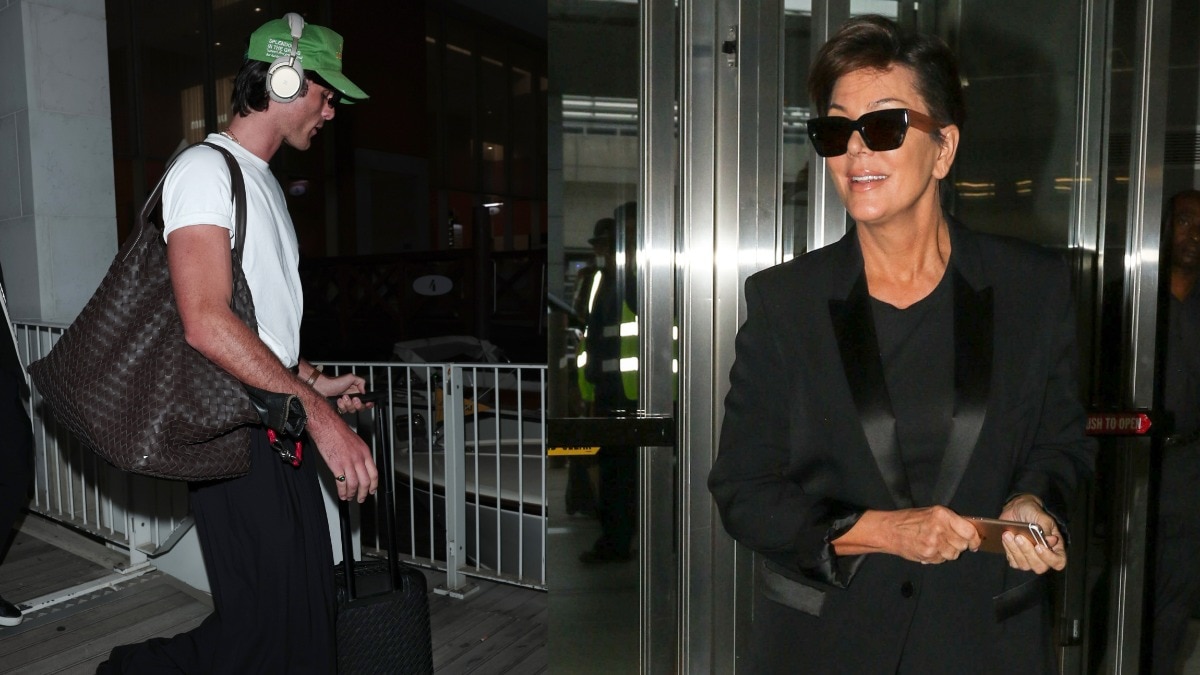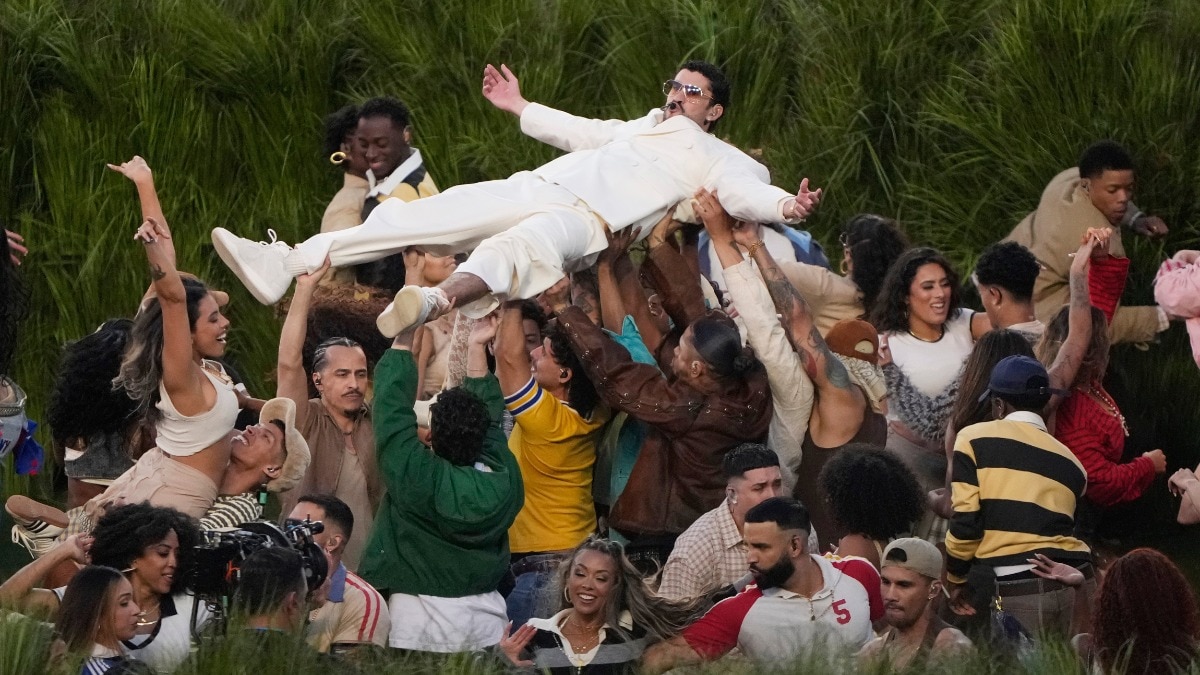
From humble beginnings to creating history at Cannes, the cast delves into the stories behind "All We Imagine as Light"
Kani Kusruti, Divya Prabha, and Chhaya Kadam recount the transformative journey of creating the film with Payal Kapadia.


Festival de Cannes garners momentous traction worldwide, owing to its grand celebration of the cinematic craft and the dazzling red carpet graced by leading actors, directors, and savants of the filmmaking industry. This year, at the 77th edition, we witnessed a group of Indian men and women dancing their way through the carpet, celebrating not only our culture but also the prestige of Indian cinema. Director Payal Kapadia’s film, All We Imagine as Light, became the first film in three decades to compete for the Palme d'Or, the festival's highest prize, amidst cinematic auteurs such as Yorgos Lanthimos, Sean Baker, and Paul Schrader.
Bazaar India spoke with the three leading women who were feted by the audiences and jury alike for their adept portrayal of nuanced characters. From capricious beginnings to historic moments at the international film festival, Divya Prabha, Chhaya Kadam, and Kani Kusruti reveal their transformative journeys with anecdotes, reassuring everyone with a gusto for any discipline or craft to never lose faith in their practice. Through their repertoire of resilience, they prove that no matter the tumult of your path, if one door closes, another one opens, and if it doesn't, you must break it down with the full force of your passion.
Harper's Bazaar: How did your journey commence, and how has your craft evolved through the years?
Chhaya Kadam: I had never thought of pursuing acting. I did a workshop and enjoyed what they taught; and because it made me as happy as it did, I thought of pursuing it. I later realised that it is not an easy pursuit. I did my workshop in 2001 but did my first play in 2006. It took some time, but I think if I would have gotten it easily I might not have valued it as much as I do today. I believe I had the love of the common people back then and I still do. It is just that I am receiving calls for these interviews now. I came with an empty pocket, so whatever I have or will get in the future will always be an addition for me.
I never thought that we would reach Cannes. Going there came with its own set of realisations; when you find people recognising you for your craft in another country, you are bound to feel validated. That feeling of hearing my name echo throughout the festival and then to have won the Jury Prize for the best film is something that I can't even describe. Seeing my people celebrate my accomplishments has made me the happiest I have ever been.
Divya Prabha: Cinema happened to me very coincidentally. I was on a morning walk one day and I saw a film shoot happening. I stopped to observe the movie crew and actors when suddenly a guy walked up to me and asked if I could sit on a bench for the next scene. I spontaneously said yes. I was expecting to watch the shoot more closely, but then the same guy asked me to do a tiny role. Over the 10 years of my acting career was an academic era for me. Acting wasn't my initial passion. My journey in the craft began with curiosity and a willingness to explore. It was not easy to wait for a long time without any kind of networking or PR. That’s how the passion led me to where I am today.
Kani Kusruti: I started working when I was 15. I believe that the craft starts when you actually start practising it and has nothing to do with recognition at all. I think the whole point of craft is to evolve, if you are stagnated at one place then that's the worst thing that can happen to not just an artist but to anybody.

HB: Do you share any resonance with your characters in the film?
CK: The more I heard about the character of Parvaty, the more similarities I found with her, which made me confident of the fact that this role was written for me and that nobody could have done it better than me.
DP: Anu and I share certain traits, but they're also distinct characters with their own personalities and journeys. While both may have rebellious tendencies, their circumstances and experiences shape them differently. I tried to recollect my younger version as reference for Anu. Though there aren’t many similarities, I can relate her to my younger self. I tried to change the way she walked, talked, laughed, and even the way she kissed. I wasn’t being Divya at all.
KK: I personally do not resonate much with a character like Prabha. I was raised in a house where I was taught to be aware of my own rights and desires and when one might be crossing the personal space of another. I was raised in a way to be completely independent and to own that responsibility for myself. I don't think I resonate with anything that she has except for the fact that she is hardworking and definitely a workaholic. Although, one thing Prabha has taught me is to be open to friendships and the transient nature of life.
HB: What is your decision-making process while agreeing to a role?
CK: Right from the beginning, I have never just wanted to be occupied, I have always wanted to do something good, something different. I wanted to learn how to work upon myself. I want to give something new to my audiences every time they come to watch my performances, which pushes me to find newness in whatever character I play. Sometimes I like the role, sometimes I like the script. Even if I am offered a smaller role, if I find the character to be of importance, I pursue it. What is constant is the urge to do something different every time. I believe that one should run after work and money will follow.
DP: I was deeply moved when I first read the script. It was so emotional and beautiful that I knew I wanted to be a part of this film. Payal’s film's EP, Pranav, called me and asked if I could audition for the role of Prabha, which Kani played. Payal had already watched my movie Declaration, and she thought I might be a good fit for Prabha. When I went to Mumbai for the second round of auditions for Prabha, Payal asked me to audition for the character of young nurse Anu instead. Payal was the main reason I decided to do it. The script is very solid, and the representation of the characters is so convincing and beautiful.
KK: My selection process to choose a character has nothing to do with my personal resonation with the character, absolutely not. The selection process for me lies in resonation with the story of the film. Ideally, I would like a story based on the artistic expression, the genre, and the style of the story-telling. But even after doing all the theatre and films that I’ve done, very rarely has it happened that I find the story to resonate with me or even the artistic expression, for that matter. So the moment I decided to become an actor, I made my peace with the fact that it is all but a privilege to be able to work in stories that resonate with your mind.

HB: What did the process of finding your characters with Payal entail?
CK: If I like a script, I become the director’s actor. I try to pursue every character with a different style. I like to present the director with many iterations of the character so that they can choose what to embrace. It is after so many years that I have seen a team that undergoes workshops ranging over 5- 6 days. Payal has worked so much on the script that she knew the characters inside out. We worked on the feel, the rhythm, and the emotions of the character, which was a process I had gone through for the first time in my career and enjoyed it thoroughly. It has become a fashion in the industry to conduct workshops, when the team itself does not know what the character is all about. Payal insists on taking a lot of takes, which used to make us wonder what it is that we are doing incorrectly. I had heard that Payal plays around with the editing a lot, but I could not guess what she was going to do with this film until I witnessed it for myself.
DP: As an actor, it’s always important to have a discussion with the filmmaker about the character. Payal always keeps that space quite open, not only for actors but also for every technician and crew members on the film. I found her very kind, generous, and democratic. She always welcomes suggestions from everyone on set, even when she knows exactly what she wants. Payal's involvement in the workshop was commendable, as she pushed us to immerse ourselves in the characters by giving us homework assignments and exercises related to the roles during workshops. It's very rare for actors to get a filmmaker like Payal. It is because of her that I now know how to approach and prepare for a character better than before. Payal's approach towards the craft is creatively satisfying, which pushed us to organically shape the character's journey.
KK: It was never strenuous for me. As I am a theatre actor, I love rehearsing, as much as possible and exploring it with Payal was such a pleasure. I was so happy, because one generally does not get that opportunity in films. In fact, I never wanted the rehearsal to end, I just wanted to keep exploring.

HB: What is your relationship with fame? With the recognition that you have now received, have you noticed any differences in how the industry perceives you?
CK: I am more than aware that I have chosen an offbeat path to walk upon. I know that my films won’t reach the common public as much as commercial films do, but I am extremely content with the decisions I have made. I choose the roles that make me happy even if they come with their own set of uncertainties.
Throughout my career, I have come across so many artists who have amazing scripts, but their films still do not come out. I think that actresses like me would love to work with these kinds of people, people who want to say something different, show something different. I believe that the audiences also want to watch a different kind of cinema. There is a lot of praise that the international films seem to garner, which is often cut short of when it comes to our artists. Although, I have faith that this will change for sure. Payal has just initiated the beginning of many, many things to come.
DP: Like any other artist, I try to practise to keep the balance and make sure that I never lose the groundedness I possess as a human. I try to never let fame overpower my craft. Fame comes along inevitably in this journey and I embrace it.
KK: Might be. As for the past experience I have had with winning some awards, I have seen some kind of difference in how they (industry) would talk to me or go about negotiating my contract. It is now dealt with in a much more respectful way than before and I feel the same extends to my co-actors as well. Actors who are not from the mainstream industry or do not have a superhit or an award still struggle with being treated professionally. So similarly, this recognition that we are getting might also be because it is almost as if India has won this global honour. There might be a certain kind of respect that's coming, but I am not thinking about such things as much and just hoping this recognition results in producers being open to such films so that resources can be provided to more such ‘Payals’ in the industry, who have many such beautiful stories to tell.

HB: What are some daily practices you follow as an actor? Are there any techniques or habits you've developed that have become integral to your routine?
CK: Every project comes with its own set of learnings. Right from the table reads, I commence my process of building a character, no matter if I secure the role or not. If you get the part, you get attached to the character for months, which is bound to stay with you. You learn something new and unique from every director, which boosts your confidence for the next project and remains with you throughout your career. I owe this journey of reaching Cannes to all my directors, be it through the smallest of the roles.
DP: Since a young age, I have always observed people and their mannerism very keenly and have the tendency to mimic people. As I look around and observe from an actor’s perspective, I never fall short of any references, even when I have to play characters from different walks of life.
KK: There are a lot of different acting styles or acting craft systems that have traditionally been there in India and are offered by different teachers across the country that an actor can seek out and learn and try to practise. One such teacher would be Venuji, from Natanakairali in Kerala, practitioners of Koodiyattam, and they offer a certain workshop called Navarasa Sadhana, which enables you to recreate the nine emotions. They have a certain way of intensive training and whatever one learns from there can be practised afterwards. Similarly, there is Adishakti. There is such a variety of theatre schools and workshops that happen in India that I would like to learn as an actor. This process is not to entirely rely on these techniques when you go for film but to kind of learn all of that and practise it when you’re not acting in a film or in theatre.

HB: What is your advice to actors who might be finding it difficult to navigate through the industry?
CK: I don't think I am capable of giving advice, but the one thing I always say is—do what makes you happy. When films like 12th Fail succeed with such glory, it gives you a different kind of feeling. Those are simple films that have been made extraordinary through the wonderful job that the actors have done. The success of such films makes you realise that we are treading on the right track. It may take sometime, but we will reach there and leave our mark. My advice to the younger generation is be determined, it will happen. I always say that we have to fight for ourselves, if one door closes, another will open; on the lighter side, if that doesn’t happen just kick down the damn door.
DP: One major advice I would like to give the aspiring upcoming actors is to never lose hope; hold on to your passion. Even the struggles that you undergo now will turn into a reference when you become an actor. As I often say, struggles are your biggest assets.
KK: I was never passionate about acting. So, I would say, for someone who is not that passionate or doesn’t consider herself talented and has still managed to reach this level in their craft, it could only happen through learning and practising. People with the passion to act and more talent can have such great fun in acting by just practising the craft. So to everyone who is shying away from learning the craft, I would say please do it because your range will expand exponentially. I find such immense joy in it despite never chasing it. I just happened to find myself amidst this and it took me 16 years to even start acting. But, even then, I pursued it, because once you start enjoying something, then you keep doing it and exploring it. So, like I said, if you have passion for it and if you are talented, just imagine what learning the craft will offer you.
All Images: Team All We Imagine as Light
Also Read: India has won 20 times at the Cannes over the years

